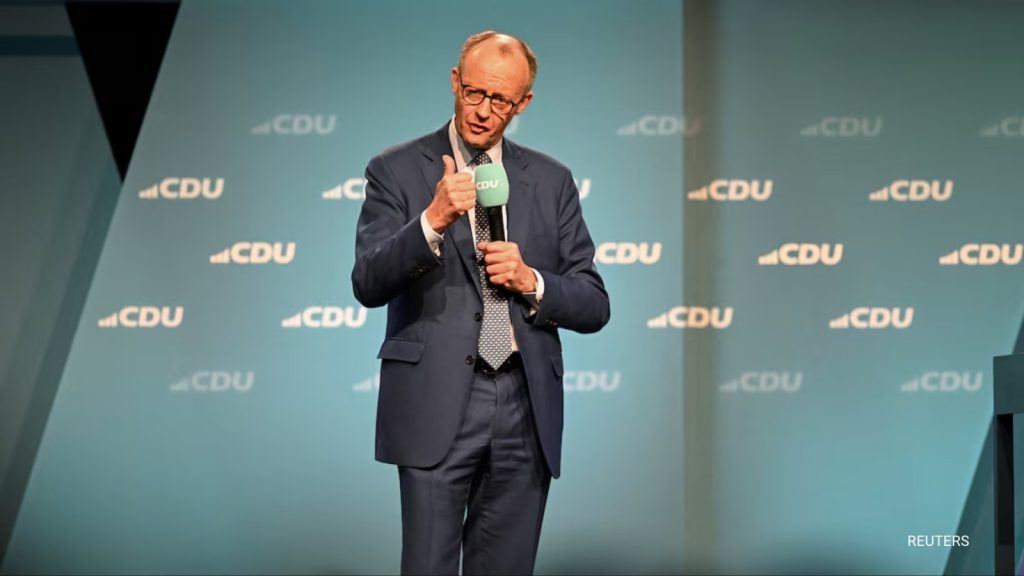
BERLIN, Feb 20 (Reuters) – A network of more than 700 fake social media accounts has sprung up in the last week of Germany’s election campaign, researchers say, promoting pro-Russian narratives and demonising conservative election frontrunner Friedrich Merz.
The bot network, dubbed “Geist” by researchers working with Germany’s Robert Bosch Foundation, carries anti-conservative, anti-war messages with AI-generated pictures of Merz.
Merz, a backer of Ukraine in its war with Russia, leads ahead of Sunday’s vote but has lost ground to the second-placed Alternative for Germany (AfD), which opposes arming Ukraine and wants to restore Germany’s energy ties to Russia.
“These and similar disinformation campaigns are known to the Information Security Office,” Germany cybersecurity watchdog BSI said about the campaign.
The identity of the people behind the posts on social media network X is unclear, but most of the accounts were created in December and made bland, apolitical posts before switching to anti-Merz messaging a week ago, the researchers said.
Most have AI-generated profiles and background pictures, illustrating their posts with AI pictures of Merz.
Some posts portray Germany as being stuck in a spiral of economic decline that can only be halted if it starts buying Russian gas again.
Russia’s embassy, which has in the past rejected as hostile propaganda assertions about bot-led election influence, did not respond to a request for comment.
Merz’s spokesperson declined to comment.
The campaign has garnered little interaction, but its scale highlights the efforts being made by interested parties, both foreign and domestic, to influence an election that could be a watershed for Europe’s far-right and for Ukraine.Quantum computers hold the promise of carrying out calculations that would take today’s systems millions of years, but the fundamental building block of quantum computers, called a qubit, is extremely difficult to control and prone to errors.
“We can assume the foreign agents of influence will attempt to push the election in their direction,” the government said late last year.
Other posts portray Merz, Germany’s likely next Chancellor, as controlled by the U.S. and link him to mass immigration under previous conservative Chancellor Angela Merkel.
A poor performance by Merz’s conservatives could force Germany’s mainstream parties into a three-way coalition, which might lack the votes to reform fiscal rules that have slowed military spending and aid to Ukraine.
Inside Telecom provides you with an extensive list of content covering all aspects of the Tech industry. Keep an eye on our News section to stay informed and updated with our daily articles.